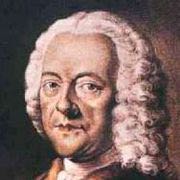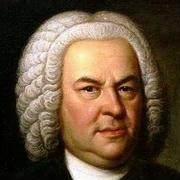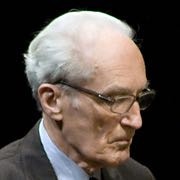Carl Philipp Emanuel Bach (8 March 1714 – 14 December 1788), also formerly spelled Karl Philipp Emmanuel Bach, and commonly abbreviated C. P. E. Bach, was a German Classical period musician and composer, the fifth child and second surviving son of Johann Sebastian Bach and Maria Barbara Bach. His second name was given in honor of his godfather Georg Philipp Telemann, a friend of Johann Sebastian Bach.
C. P. E. Bach was an influential composer working at a time of transition between his father's Baroque style and the Classical style that followed it. His personal approach, an expressive and often turbulent one known as empfindsamer Stil or 'sensitive style', applied the principles of rhetoric and drama to musical structures. Bach's dynamism stands in deliberate contrast to the more mannered galant style also then in vogue.
To distinguish him from his brother Johann Christian, the "London Bach", who at this time was music master to the Queen of Great Britain, C. P. E. Bach was known as the "Berlin Bach" during his residence in that city, and later as the "Hamburg Bach" when he succeeded Telemann as Kapellmeister there. To his contemporaries, he was known simply as Emanuel.
Bach was also an influential pedagogue, writing the ever influential "Essay on the true art of playing keyboard instruments", which would be studied by Haydn, Mozart and Beethoven, among others.











